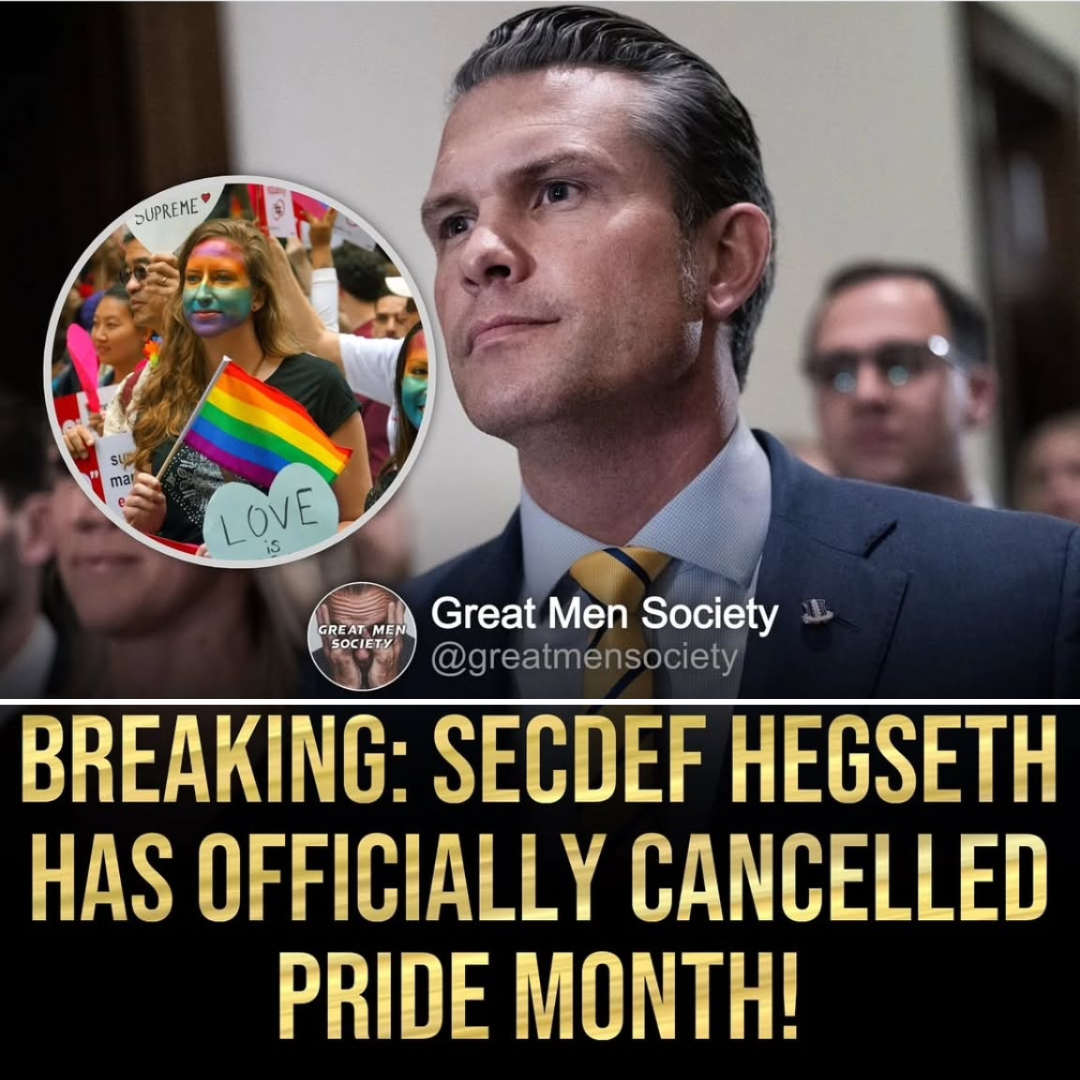Black History Month has been a regular feature of life at Air Force bases around the world for decades. No longer.
A directive from Defense Secretary Pete Hegseth, headlined “Identity Months Dead at DoD,” wipes Black History Month and similar celebrations off the military calendar — starting immediately.
“Our unity and purpose are instrumental to meeting the Department’s warfighting mission. Efforts to divide the force — to put one group ahead of another — erode camaraderie and threaten mission execution,” Hegseth said in the directive, formally known as a “guidance.”
“Going forward, DoD Components and Military Departments will not use official resources, to include man-hours, to host celebrations or events related to cultural awareness months, including National African American/Black History Month, Women’s History Month, Asian American and Pacific Islander Heritage Month, Pride Month, National Hispanic Heritage Month, National Disability Employment Awareness Month, and National American Indian Heritage Month.”
Hegseth went on: “Installations, units, and offices are encouraged to celebrate the valor and success of military heroes of all races, genders, and backgrounds as we restore our warrior culture and ethos. We are proud of our warriors and their history, but we will focus on the character of their service instead of their immutable characteristics.”

African Americans have been a bulwark of the U.S. military for decades, serving in numbers larger than their share of the population. They made up 19% of all active-duty Army soldiers as of January 2024 and 15% of active-duty enlisted personnel and officers in the Air Force and Space Force.
According to Census Bureau estimates, African Americans are 13.7% of the U.S. population.
Retired Army Maj. Alfredo “Freddie” Valenzuela, a former commander of the San Antonio-based U.S. Army South, called Hegseth’s action hasty and ill-advised.
“These celebrations have been around for many, many years, probably before he was even born, and they have been very successful,” said Valenzuela, 76. “The optics, the rhetoric need to be changed, but to cancel all of them, I think, is a mistake.”
Black History Month dates to 1976, when then-President Gerald R. Ford issued the first “Message on the Observance of Black History Month.” Subsequent presidents continued the tradition.
Trump himself followed suit on Friday, the same day Hegseth issued his directive. In a proclamation recognizing Black History Month, Trump said African Americans “have been among our country’s most consequential leaders, shaping the cultural and political destiny of our Nation in profound ways.”
Trump closed by saying, “I call upon public officials, educators, librarians and all the people of the United States to observe this month with appropriate programs, ceremonies and activities.” The proclamation did not mention the armed forces.
‘Unfailing bravery and grit’
Joint Base San Antonio has observed Black History Month for many years. For instance, an announcement dated Feb. 1, 2023, and headlined “JBSA celebrates Black History Month” said service members “are encouraged to participate.”
“Black History Month” posters were displayed across the joint base, the nation’s largest, and a Gospel Fest was held at Freedom Chapel at JBSA-Lackland. Also that month, the Rev. Trevor Alexander, a Black Army veteran and senior pastor at True Vine Church, was guest speaker at a luncheon with the theme “Inspiring Change. The 2022 movie “Devotion,” about Jesse Brown, the nation’s first Black naval aviator, was shown at Lackland.
During Black History Month last year, soldiers, civilian personnel and family members gathered at the Blesse Auditorium at Fort Sam Houston to listen to jazz performances honoring Louis Armstrong, Bessie Smith, Jimi Hendrix and other African American musical luminaries.
San Antonio’s military installations also have faithfully celebrated Women’s History Month, held in March each year under a 1987 act of Congress.

An Air Force announcement dated March 1, 2022, encouraged JBSA personnel to recognize “the unfailing bravery and grit of women in America, particularly in times of crisis and emergency.
“Women served our Nation during World War II, led organizing and litigation efforts during the Civil Rights movement, and represented the United States on the global stage in the fight for human rights, peace, and security,” the announcement said.
In 2019, the Women’s History Month observance was highlighted by a recruit training parade at Lackland featuring an all-female group of MTIs, or military training instructors. Brig. Gen. Laura L. Lenderman, then commander of the joint base, served as the reviewing official.
Lenderman, now a lieutenant general, is deputy commander of Pacific Air Forces at Joint Base Pearl Harbor-Hickam in Hawaii.
JBSA has celebrated Pride Month each June with poster displays, guest speakers, workshops, a 5K Run for Diversity at Lackland and news releases celebrating individual gay, lesbian and transgender service members.
In September, JBSA and U.S. Army South co-sponsored a celebration of National Hispanic Heritage Month featuring food and live music at Fort Sam Houston.
“Our Army represents the greatest ideal of inclusiveness, and it is truly fitting that we pause to recognize and appreciate the contributions of Hispanic American soldiers, civilians, and family members who have served with distinction while being a source of unwavering strength for our Army team for a very long time,” Maj. Gen. Philip J. Ryan, commander of Army South, said at the time.
Despite this history, leaders of the various components of JBSA were quick to fall in line with Hegseth’s directive to scrap cultural awareness observances.
For instance, the Air Education and Training Command based at JBSA-Randolph, which oversees the recruitment, training and education of airmen across the service, said in a statement issued Tuesday: “Our installations will fully execute and implement the SECDEF’s guidance.”
‘This will not stand’
Hegseth’s rejection of diversity celebrations came shortly after a controversy erupted over the removal of instructional videos on the Tuskegee Airmen, a group of pioneering Black pilots, from the Air Force basic training curriculum. A video about pathbreaking female aviators was also spiked.
The San Antonio Express-News was first to report on the curriculum changes, which sparked heated criticism from some elected officials and retired military leaders. Two days later, Hegseth reversed the decision, saying on social media: “This will not stand.” Air Force officials said the videos would be restored to the classroom at Lackland, the hub of Air Force basic training.
However, one of three videos that had been pulled, titled “Breaking Barriers: The Race Barrier,” remained shelved. Air Force officials said the video was under review but would not say why, or whether it would ever be put back in the curriculum.
The “Breaking Barriers” video cites the Tuskegee Airmen as evidence that diversity strengthens the military. Of the three videos that were initially withdrawn, it is the only one in which the word “diversity” is heard, and unlike the other two, it explicitly makes the case that gender and racial diversity enhance national security.
Trump, in his inaugural address Jan. 20, vowed to “end the government policy of trying to socially engineer race and gender into every aspect of public and private life.” The same day, he signed an executive order dismantling federal diversity, equity and inclusion programs. The next day, the new administration placed DEI officials on leave and ordered agencies to spike postings or advertisements promoting diversity.
Journalist and historian Thomas E. Ricks, author of “Waging a Good War: A Military History of the Civil Rights Movement, 1954-1968,” predicted that the Trump administration’s effort to eradicate DEI from the armed forces would backfire.
“I think that this anti-DEI effort is going to demoralize big parts of the U.S. military,” he said. “Secretary Hegseth seems to forget that the armed forces are about 20% Black and 17% female. I want an effective military, which is one reason I want to see those service members treated well.
“Hegseth’s acts also run counter to the tradition of the U.S. military leading the way in integration in our society,” Ricks said. “That process of integration made our military better.”
Retired Sgt. Maj. Donald Sparks, a 31-year Army veteran from Houston who served in Iraq, Afghanistan and the war on the Islamic State, wrote on Facebook that Hegseth is “dismantling everything that brings cohesion, camaraderie and mutual respect amongst those who VOLUNTEER to serve the nation in uniform.”







